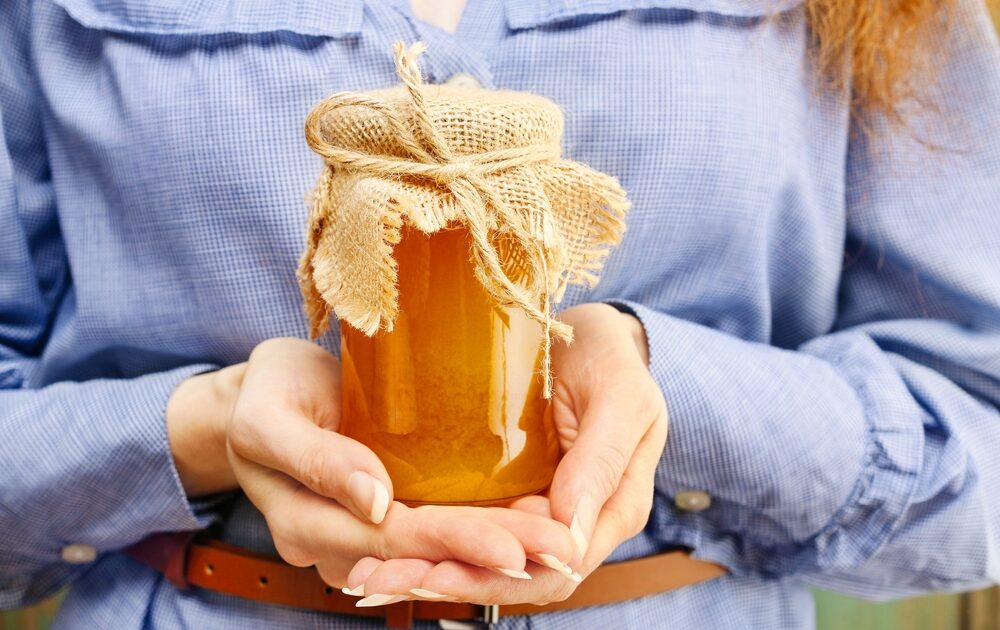The Health Benefits of Honey: What to Know Before You Buy

Whether drizzled on yogurt, stirred into a cup of tea, or eaten by the spoonful, the health benefits of honey are real. It’s a sweetener that you can feel good about eating because it contains vitamins, minerals, and is even good for staving off seasonal allergies. But not all honey is created equal. Here’s what you need to know the next time you buy honey.
1. Choose Raw, Unfiltered Honey
To get the health benefits of honey it needs to be raw and unfiltered honey in its most natural state. Because it isn’t filtered or heated, the majority of its nutrients stay intact. Raw and unfiltered honey contains bee pollen, a superfood that’s loaded with B vitamins and folic acid. It enhances energy, has anti-inflammatory properties, and a whopping 40 percent protein. According to a 2012 study by the National Honey Board, filtered honey contains far less bee pollen.
The reason why honey is filtered and heated is because many consumers, likely out of habit and convenience, prefer honey that stays liquidy and more easily pourable out of those popular honey bears. Raw honey, on the other hand, becomes solid at room temperature. But in the end, you’re sacrificing all of the nutritional value for honey that pours easier.
2. Honey Really Can’t be Organic
In a perfect world every flower and plant that a honey bee visited would be organic, but in reality, that’s just not the case. While there are certified organic honeys on the market, honey bees still come in contact with at least some synthetic pesticides. Even still, buying organic raw, unfiltered honey is still your best bet when it comes to health benefits.
3. Conventional Honey isn’t All its Cracked Up to Be
Conventional grocery store honey can be adulterated and laced with high fructose corn syrup and even genetically modified corn. In fact, tests conducted by Food Safety News have shown that most honey isn’t even honey. According to the U.S. Food and Drug Administration (FDA), ultra filtered honey that no longer contains pollen isn’t really honey at all.
“Ultra filtering is a high-tech procedure where honey is heated, sometimes watered down and then forced at high pressure through extremely small filters to remove pollen, which is the only foolproof sign identifying the source of the honey,” reports Food Safety News. “It is a spin-off of a technique refined by the Chinese, who have illegally dumped tons of their honey – some containing illegal antibiotics – on the U.S. market for years.”
When it comes to choosing honey, the farmers market can be your best friend. Since the FDA does not mandate what raw and unfiltered labeling really means, talking to a local farmer can help ensure you’re getting the good stuff. Raw and unfiltered honey will be solid and cloudy at room temperature.
With a little background knowledge, you can choose honey with the most nutrient bang for your buck.
Related on Organic Authority
California Drought Forcing Honeybees Out of State
Federal Court Rules in Favor of Honey Bees, Blocks EPA-Approved Pesticide
A French Beekeeper Buzzes on the Benefits of Honey, Pollen, and Propolis
Image of honey from Shuttershock

